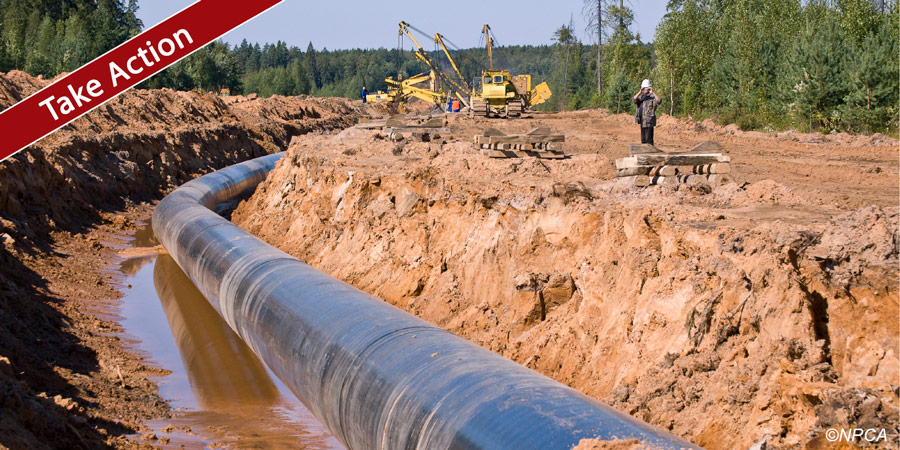 Photo courtesy of the National Parks Conservation Association
Photo courtesy of the National Parks Conservation Association
The following alert text was provided by our partner, the Shenandoah Valley Network.
Senator Hanger (R-Staunton) has introduced SB 950, an excellent bill to protect water resources from impacts of pipeline construction, similar to a bill that Delegate Rasoul (D-Roanoke) introduced in the House, HB 1141. Sen Hanger’s bill has been referred to Senate Finance.
If you know or are a constituent of any of the following Senators, can you please make a quick call or email in support of this bill?
Committee Members
Thomas K. Norment, Jr., Co-Chair
Emmett W. Hanger, Jr., Co-Chair
- Janet D. Howell
- Richard L. Saslaw
- L. Louise Lucas
- Stephen D. Newman
- Frank M. Ruff
- Frank W. Wagner
- Ryan T. McDougle
- Jill Holtzman Vogel
- Charles W. Carrico
- Mark D. Obenshain
- George L. Barker
- Siobhan S. Dunnavant
- Richard H. Stuart
- Rosalyn R. Dance
This is important legislation and terrific to see legislators signaling that DEQ’s current process is not working to protect our water resources.
Reasons to support SB950:
- Protecting Water Quality Requires Complete Information – We don’t know the precise impacts pipeline construction will have on water quality unless we review all relevant information. SB950 would require the State Water Control Board to analyze all critical information before it issues a permit for an interstate natural gas pipeline.
- Preserving State Authority – Section 401 of the federal Clean Water Act grants states broad authority to determine whether interstate natural gas pipeline projects comply with state water quality standards. This bill would require the Virginia Department of Environmental Quality to exercise that critical authority on behalf of the Commonwealth.
SB950 would require the Board to analyze all critical information before it issues a permit for an interstate natural gas pipeline. It would require both a Virginia Water Protection Permit and a Water Quality Certification under Clean Water Act § 401, including a review of waterbody crossings and construction through karst terrain.
Summary of the bill as introduced:
Pipeline construction; upland impacts; supplemental review. Requires the Department of Environmental Quality (the Department) to determine whether any activity associated with a federally regulated natural gas pipeline project will occur in an upland area or other sensitive area, will be likely to result in a discharge to state waters and will not be covered by a federal Clean Water Act certification. The bill requires the Department, for each identified activity, to conduct a separate supplemental review of the project. In certain cases, the bill requires the Department to recommend that the State Water Control Board (the Board) impose additional conditions on the project. The bill also directs the Board to require both a Virginia Water Protection Permit and an Individual Water Quality Certification under the federal Clean Water Act for any interstate natural gas pipeline and, for such pipelines, to review water body crossings as well as plans for erosion and sediment control and stormwater management. Finally, the bill directs the Board to adopt emergency regulations to implement the provisions of the act.
